Here, a code snippet in C++.
template <class Type>
Type modcin(Type var) {
int i=0;
do{
cin>>var;
int count = 0;
if(!cin) {
cin.clear();
cin.ignore(numeric_limits<streamsize>::max(), '\n');
for ( ; count < 1; count++) { //Printed only once
cout<<"\n Invalid input! Try again: ";
cin>>var;
}
}
} while (!cin);
return var;
}
The variables are tailored to match yours' so you can understand better. This code isn't perfect though.
- It can't handle cases like "1fff", here you would just get a 1 in return. I tried solving it but then a infinite loop was being encountered, when I'll fix it, I'll update the code.
- It also can't function in TurboC++ effectively. I don't know if there are alternatives but the
numeric_limits<streamsize>::max() argument gives a compiler error ('undefined symbol' error for numeric_limits & streamsize and 'prototype must be defined' error for max()) in Turbo C++.
So, to make it work in Turbo C++. Replace the numeric_limits<streamsize>::max() argument with some big int value such as 100.
This will make it so that the buffer is only ignored/cleared till 100 characters are reached or '\n' (enter button/newline character) is pressed.
EDIT
The following code can be executed on both Turbo C++ or proper C++. The comments are provided to explain the functioning:
template <class Type> //Data Integrity Maintenance Function
Type modcin(Type var) { //for data types: int, float, double
cin >> var;
if (cin) { //Extracted an int, but it is unknown if more input exists
//---- The following code covers cases: 12sfds** -----//
char c;
if (cin.get(c)) { // Or: cin >> c, depending on how you want to handle whitespace.
cin.putback(c); //More input exists.
if (c != '\n') { // Doesn't work if you use cin >> c above.
cout << "\nType Error!\t Try Again: ";
cin.clear(); //Clears the error state of cin stream
cin.ignore(100, '\n'); //NOTE: Buffer Flushed <|>
var = modcin(var); //Recursive Repeatation
}
}
}
else { //In case, some unexpected operation occurs [Covers cases: abc**]
cout << "\nType Error!\t Try Again: ";
cin.clear(); //Clears the error state of cin stream
cin.ignore(100, '\n'); //NOTE: Buffer Flushed <|>
var = modcin(var);
}
return var;
//NOTE: The '**' represent any values from ASCII. Decimal, characters, numbers, etc.
}
